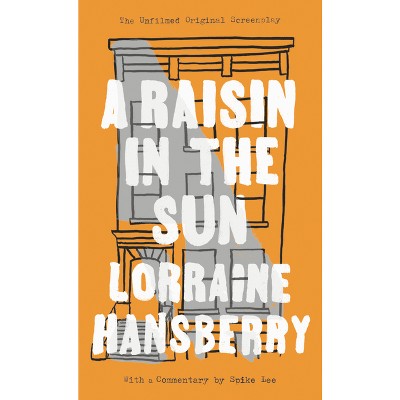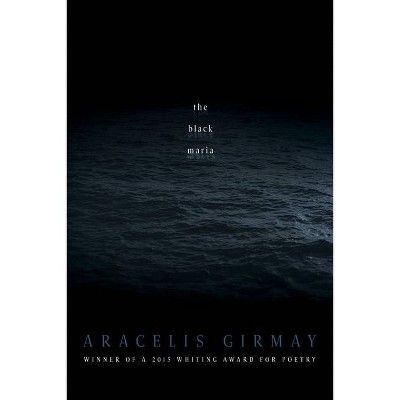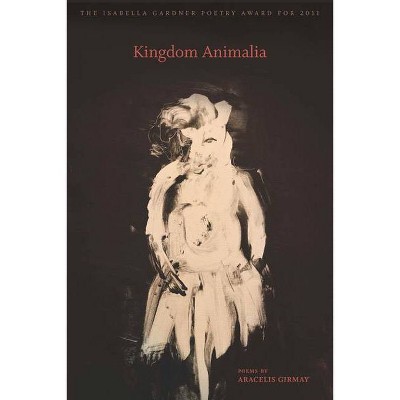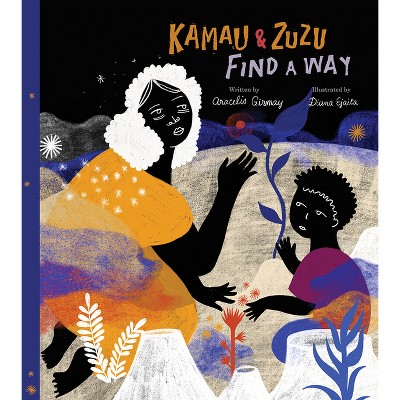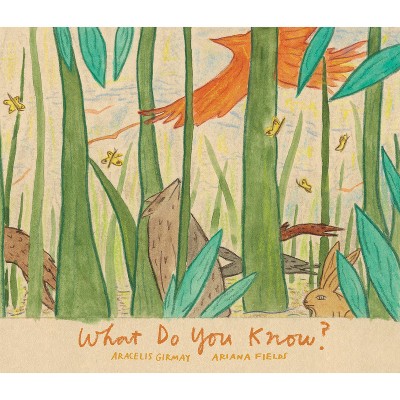Sponsored

Green of All Heads - by Aracelis Girmay (Paperback)
In Stock
Sponsored
About this item
Highlights
- The Whiting Award-winning poet returns.Written over the span of a decade, GREEN OF ALL HEADS is a work of formal range and emotional urgency.
- About the Author: Aracelis Girmay is a Whiting Award-winning poet, editor, essayist, and educator at Stanford University.
- 124 Pages
- Poetry, American
Description
About the Book
"Written over the span of a decade, GREEN OF ALL HEADS is a work of formal range and emotional urgency. In the coinciding wakes of tragic loss and new motherhood, Aracelis Girmay examines the entangled temporalities of an aging parent and newly born children. This vital work grapples with what it means to attend to life in the context of corporate industries of both and death. In language shaped by these pressures, she turns to what is small, unruly, nationless, plural-flowers, speech-to reach toward new relational and political possibility. Away from the fixed and monumental, and toward that which is fleeting, she writes: "-- i am learning to lift -- my voice -- like a flower -- in -- a field of flowers --." The result is a language broken and emboldened by love"--Book Synopsis
The Whiting Award-winning poet returns.
Written over the span of a decade, GREEN OF ALL HEADS is a work of formal range and emotional urgency. In the coinciding wakes of tragic loss and new motherhood, Aracelis Girmay examines the entangled temporalities of an aging parent and newly born children. This vital work grapples with what it means to attend to life in the context of corporate industries of birth and death. In language shaped by these pressures, she turns to what is small, unruly, nationless, plural -- flowers, speech -- to reach toward new relational and political possibility. Away from the fixed and monumental, and toward that which is fleeting, she writes: "-- i am learning to lift -- my voice -- like a flower -- in -- a field of flowers --" The result is a language broken and emboldened by love.
Review Quotes
"...is liturgy, is prayer, is GREEN OF ALL HEADS, for the living and for the dead; for the quotidian and for the extraordinary. Precipitated by the unexpected transition of her father to the realm of the Ancestors, the poet Aracelis Girmay decodes the Great Code that is poetry to bring to the 'smallest bone of (our) ear' the single memory that is love, fecund in its singularity. Alongside the poet we pace the rhythms of grief as well as the everyday to approach the revelation that while death never rhymes with life, it provides us the extended bassline riff supporting our livity --those bright, bold notes echoing the sound we were and are and will be running out of this life. ...is benediction, is prayer, is eulogy, is chant; is mourning ground, is grief, genealogies of; is life, is is & am, is altar, is GREEN OF ALL HEADS, filmy netsela of blessings gently landing on our heads to embrace, to hold our fragile mortality, ever luminous in the ordinary." --m. nourbeSe philip, author of She Tries Her Tongue - Her Silence Softly Breaks and Zong!
"In many African-based cosmologies, death is not the end of life nor does it mark an absence of the living. 'Heads' are not only the origin of reason and thought but a sacred realm where time expands and our ancestors keep on living. In GREEN OF ALL HEADS, Aracelis Girmay mourns her father's death, but the experience becomes a knot in a web of relations between the human body, memory, political history, the capitalist economy on death and the trans-physical. GREEN OF ALL HEADS takes us to Eritrea, Piñones, Puerto Rico (sacred land of the maroons), to funeral homes in the U.S., dentist offices and bodegas--making us question how we live the death of our loved ones, how, for some, it has become an individual experience. Yet Girmay insists on the communal, shared understanding of death. Through this masterfully written poetry collection, centered on the materiality of memory and remembrance, we connect with that which exists at the other side of perception. Aracelis Girmay creates territories of simultaneity and convergence, while pondering death as a communal experience. At last, we have a collection of poetry that talks about death in our intimate language of affections." --Mayra Santos-Febres, author of La otra Julia and Boat People
About the Author
Aracelis Girmay is a Whiting Award-winning poet, editor, essayist, and educator at Stanford University. Her books have been named finalists for the National Book Critics Circle Award, the Hurston/Wright Legacy Award, and the Connecticut Book Award. She has received fellowships from the Whiting Foundation, Civitella Ranieri, the National Endowment for the Arts, the Cave Canem Foundation, among others. Girmay lives in Berkeley, CA.



